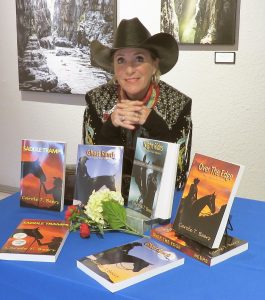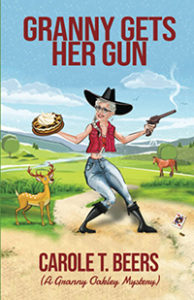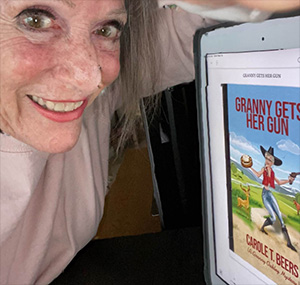
The importance of creating captivating characters ruled our post about penning an unputdownable book series. Now story arc(s) grab the spotlight. That’s right: arcs, or a character’s overarching purpose, hoped-for results that prevail through changing times, circumstances and novels.
Characters can be interesting as heck in one book. Situations can scare your off socks off–or make them roll up and down. But to keep readers craving more books with these same characters, your main people need a quest, an unputdownable dream that they live by. Not only for one fabulous book but across several books. A morality or driving force. A fiercely held belief. In good, power, magic, family, whatever. Even if that series is only a gleam in the writer’s eye! It must be strong enough to stand through a whole boxed set, or sequential TV episodes. Yes, please!
Your character is captivating. That’s half the battle. He or she is complex, maybe quirky but always appealing, cleverly backstoried. The first book sweeps her through a twisty plot in a smart relevant setting. She prevails at the end. Or, if you follow several people in a connected quest in this first book, they prevail. For the moment. For one book.
Big point! Because you MUST–in a compelling series with the same or related characters–create people or problems in the first novel that perhaps are non-vital to its immediate resolution, but important to the others that may follow. You finish one story but leave the door open for more.
How to develop the carryover series arc? Think bigger picture for your characters in the one novel. Leave some threads unwoven, seemingly minor points and issues not pursued. It’s OK to go back through your work in progress and sneak IN such points, kind of “hide” them. You will resolve the book’s main issue at its end. But you also can raise other questions that need answering –often without the reader knowing she needs answers.
With a story arc that carries and mutates through several books, you have a hero or group’s ongoing quest. Righting wrongs, working on personal or societal flaws, getting/earning something tangible. Understanding themselves or their family. Finding peace, or a home for the heart.
Ask what could develop from other puzzles you’ve brought up or thrown together as set decoration, distraction or backgrounding. What might happen with other marbles you’ve put at the edge of a table. With other characters who have their own issues. That, fellow scribes and friends, plants a seed of craving more books in a series. A reader might not yet realize they want to know more on side issues, people or coming events (weddings, breakups, battles). But believe me, deep in their heart or mind, they do!
Even if a writer doesn’t know for sure they’ll turn their a book into a series, they should be open to the idea. Well-written and edited books make readers trust the author…and want more of their novels. A good series can be an author’s best friend. As a marketing tool, and as a cornerstone of one’s reputation.
Writing a series, you already have many characters developed (at least partly), and settings that are often, well, set. Thank you, authors Robert B. Parker, J.K. Rawlings, Lee Child, Sue Grafton, Robyn Carr and a host of others.
Think your book can make a series? “Saddle Tramps,” the first of my five Pepper Kane Mysteries, certainly did. Along with spawning a spinoff series, The Granny Oakley Mysteries, about my star sleuth’s feisty 80-year-old mom.
I say go for it. Write as if you might be writing a series. Fill your book(s) with great characters and quests. Consider them friends and family, if they’re decent and interesting to be with. Later you’ll enjoy crafting related stories or taking interesting side trips. This can keep you writing forward. Looking forward to writing. When you can be with your “friends” and “family” in special places. What’s not to love about that?

 Many of us crave certainty, continuity with “benefits.” Books and TV/film series can provide this. Notably in anxious times. But really in every time, at any age. Did you read all the Nancy Drew books? The Jack Reachers? Stephanie Plums? Doubtless for pleasure or needed distraction.
Many of us crave certainty, continuity with “benefits.” Books and TV/film series can provide this. Notably in anxious times. But really in every time, at any age. Did you read all the Nancy Drew books? The Jack Reachers? Stephanie Plums? Doubtless for pleasure or needed distraction.